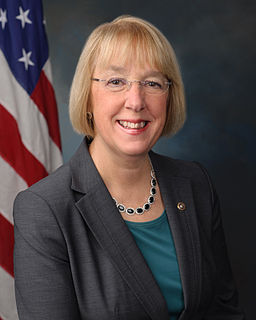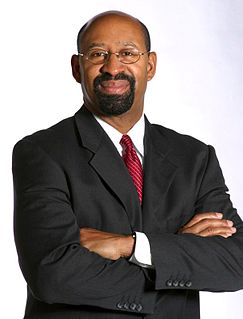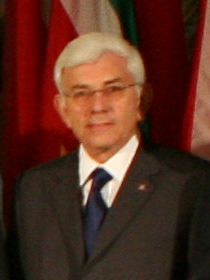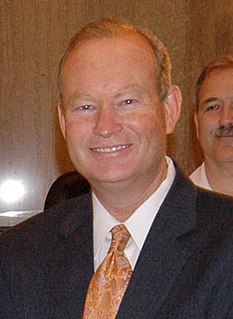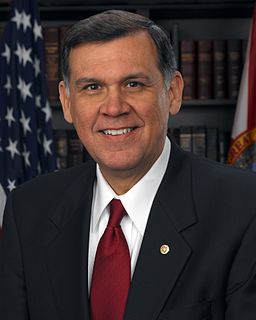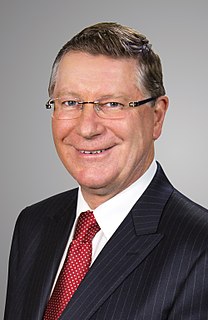Top 1200 Crumbling Infrastructure Quotes & Sayings - Page 18
Explore popular Crumbling Infrastructure quotes.
Last updated on April 20, 2025.
This is a valley of ashes--a fantastic farm where ashes grow like wheat into ridges and hills and grotesque gardens; where ashes take the forms of houses and chimneys and rising smoke and, finally, with a transcendent effort, of men who move dimly and already crumbling through the powdery air. Occasionally a line of gray cars crawls along an invisible track, gives out a ghastly creak, and comes to rest, and immediately the ash-gray men swarm up with leaden spades and stir up an impenetrable cloud, which screens their obscure operations from your sight.
In Afghanistan you are not rebuilding, you are building. There is very limited infrastructure and extreme terrain, with deserts in the south and mountains so high in some areas that helicopters don't even fly well at a certain altitude because the air becomes so thin. The country has a serious problem of illiteracy, especially after so many years of war and Taliban rule.
Before, companies and startups had to lay up all this capital for data centers and servers, and take your scarce resource, which in most companies is engineers, and have them work on the undifferentiated heavy lifting of infrastructure. What the cloud has done is completely flipped that model on its head so that you only pay for what you consume.
The arguments of waste are heavily overdone, because what you do is to accelerate the infrastructure that you have to build anyway, like airports and roads, and in this case it happens much faster. So speaking of a roadmap, without being specific, I would still go for Asia, Latin America, Africa and the Middle East - that's what our clients are really interested in.
America faces a mounting transportation crisis, and the primary culprit is road congestion. Traffic makes us unhealthy, wastes enormous amounts of time, and cripples national productivity. America needs expanded roads and transportation infrastructure, but traditional gas tax funding is no longer available.
In a fair society, the solution to unemployment is not to force people into workfare programmes which do little more than supply big companies with free labour. It's to create jobs that pay a living wage, for example, by investing in new sustainable infrastructure projects and boosting the jobs-rich low carbon economy.
He had a better mind and a more rigorous temperament than me; he thought logically, and then acted on the conclusion of logical thought. Whereas most of us, I suspect, do the opposite: we make an instinctive decision, then build up an infrastructure of reasoning to justify it. And call the result common sense.
The billions being spent on Trident replacement would be much better spent on investing in developing the infrastructure we need for a zero-carbon economy, as well as in protecting public services. To use the money on a project that makes Britain and the world a far more dangerous place is politically irresponsible and economically obscene.
The PUP came into office in 1998 when the public debt of Belize was over $600 million and the economy was at a standstill. When we left office in 2008, ten years later, the debt was higher, but a lot was accomplished: the economy was transformed and the social and physical infrastructure of the country significantly upgraded.
The greatest wealth of this nation is not only the mergers of giant corporations or the possibility of further globalization of the infrastructure of the world. In the United States, our greatest single source of wealth is the minds and talent of our young people. Not to use it is stupid - to waste it is a crime.
Public infrastructure around the world is facing unprecedented stress, with hurricanes, cyclones, floods and forest fires all increasing in frequency and intensity. It's easy to imagine a future in which growing numbers of cities have their frail and long-neglected infrastructures knocked out by disasters and then are left to rot, their core services never repaired or rehabilitated.
The co-opting of the environmental movement by the petroleum industry had a shattering effect. It crushed nascent biofuel businesses, killed research, cut off critical funding, stopped the building of new infrastructure, dissolved powerful alliances and seeded America with doubt over our ability to free ourselves from petroleum.
We promote new fossil fuel infrastructure, from airport expansion and coal mines in the U.K. to oil pipelines in the U.S. Investments are meant to build and secure our shared future - but all these fossil fuel investments are directly fuelling the climate crisis that threatens to undermine that future.
As far as I know, Russians are the first among tourists going to Turkey; last year three million Russians visited that country, although its climate zone is almost the same as the one of the Black sea region. Therefore, we have had an important task to develop an infrastructure in this region of the Russian Federation.
The Indian elite send their children to expensive private schools, bypassing the public school system. They have their own infrastructure for water, with sumps to store it, pumps to lift it, and fancy filters to de-risk from erratic, polluted government water. Most access private healthcare to bridge the health services deficit.
Isolated and unincorporated, North Gulfport lacked a basic infrastructure: flooding and contaminated drinking water were frequent problems. Although finally incorporated in 1994 - not long after the arrival of the first casino - many of North Gulfport's streets still lack curbs, sidewalks, and gutters.
Every few decades, we have an opportunity to make a drastic change to the way we live our lives. We get a chance to design the building blocks of our daily routines, the infrastructure that will support and accompany us for the years to come - from the trains and trams we ride, the offices we work in, to the energy that powers our homes.
The motivation to start the infrastructure business was to have at least one business that gives you annuity income. Others are services businesses that don't give you annuity income. If you keep the customer happy, you make money. But in a household, if there are five people, keeping all of them happy is also difficult.
We've been following many forms of democratized ownership, starting with co-ops, land banks at the neighborhood level, municipal ownership and state ownership of banks - there's a whole series of these that attempt to fill the small-scale infrastructure that can build up to a larger theoretical vision.
One of the most frustrating things is to see a country in which you had elections, the elections were a success, but then you have to say to people nothing can be improved in the next few months, even in the next few years, in infrastructure, in water, in sanitation, in health, in education, in jobs.
Like almost every major infrastructure, the Internet can be abused and its users harmed. We must, however, take great care that the cure for these ills does not do more harm than good. The benefits of the open and accessible Internet are nearly incalculable, and their loss would wreak significant social and economic damage.
Many of the problems of poverty and need are really problems of physical infrastructure: not enough hospitals, too few schools, insufficient roads, bridges, and a lack of tools. This is what makes traditional philanthropy so daunting. You could build a thousand new hospitals in some parts of the world and barely make a difference.
For an economy built to last we must invest in what will fuel us for generations to come. This is our history - from the Transcontinental Railroad to the Hoover Dam, to the dredging of our ports and building of our most historic bridges - our American ancestors prioritized growth and investment in our nation's infrastructure.
In the US after the Great Depression, they invested heavily in infrastructure to create a lot of employment. In Germany after the war there was the Marshall plan for roads, rail, housing, energy, water and so on. That created massive employment after the devastation of the war and helped them to rebuild the country.
It turns out that advancing equal opportunity and economic empowerment is both morally right and good economics, because discrimination, poverty and ignorance restrict growth, while investments in education, infrastructure and scientific and technological research increase it, creating more good jobs and new wealth for all of us.
Through Duke Energy's strong balance sheet and electric generation expertise, and Piedmont's understanding of natural gas markets and proficient operations, the combined company will be well-positioned for a future that may require additional natural gas infrastructure and services to meet the needs of our customers.



